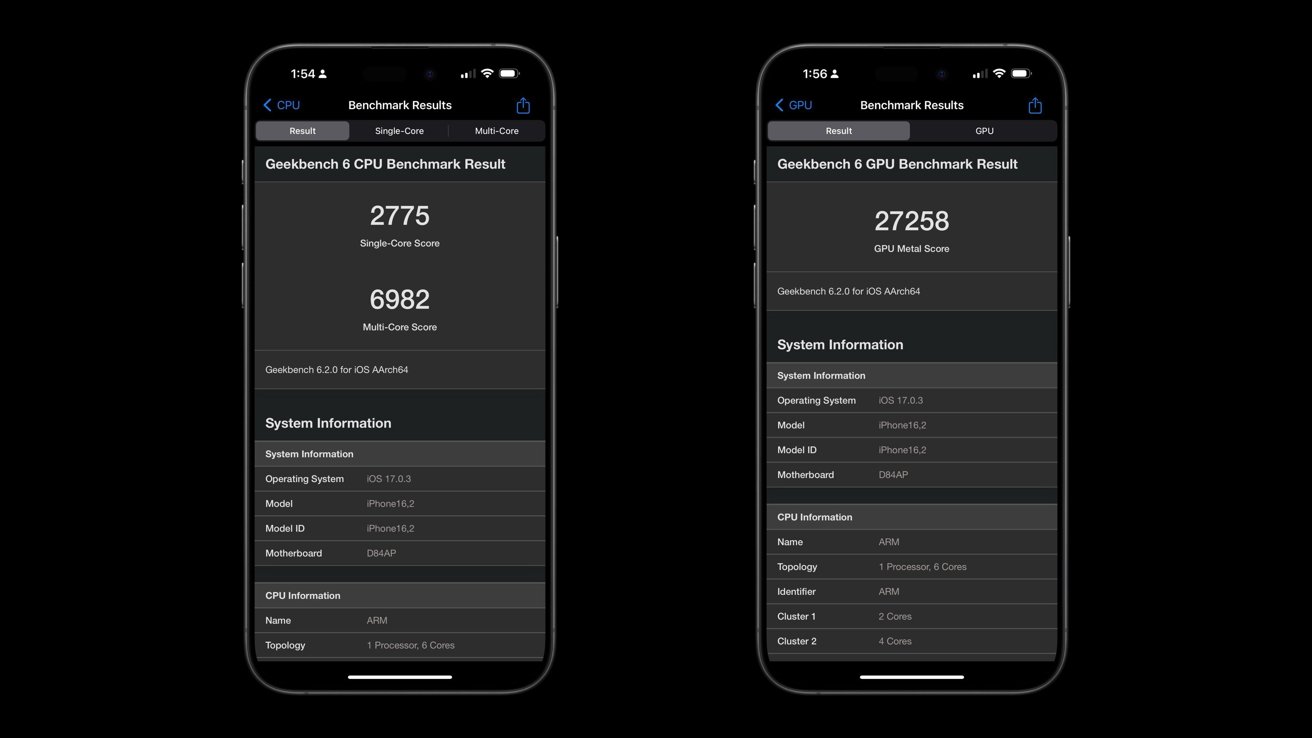Initial testing of the iOS 17.0.3 update demonstrates that Apple managed to reduce heat in the iPhone 15 without impacting performance at all.

iPhone 15 Pro Max Geekbench benchmarks after the iOS 17.0.3 patch applied
Early iPhone 15 hands-on experiences were strange to read, with a clear dichotomy. In those accounts, some phones were getting very hot, and some weren't. Reliable data on this was obscured somewhat by phones indexing after data transfer or OS update, which just complicated assessment.
As the days wore on, it was clear that not every user was complaining about heat, nor was it a majority of iPhone 15 users. There were some, and we had a brief bout of it with one of our staffers early -- but that case cleared up.
But social media hammered on with the idea, picked up and amplified by the tribal nature of the internet.
Apple waited until September 30 to say something about it. At the time, they blamed the heating on Instagram and other apps, in conjunction with a bug in iOS 17.0.2 that was aggravating the issue.
And they promised a patch to iOS to deal with the issue. That update arrived on Wednedsday afternoon.
In the hour and a half that the update has been available, we've updated a few of our iPhones with the patch and re-ran benchmarking we relied upon in some of our reviews.
We ran every benchmark we did in the reviews several times across multiple runs and users. In every case, we got what we saw in the studies, with little or no variance.
If you hammer any computing device or charge a battery, it will get hot. Physics and chemistry are inescapable. We believe the iPhone could have better cooling systems for longer-term performance, but that's neither here nor there today.
Ultimately, time will tell on this, and I'm sure there will be outlier experiences and applications, as benchmarking isn't the universal end-all of performance testing. But today, initial testing with a wide net shows no significant performance issues induced by the patch.
